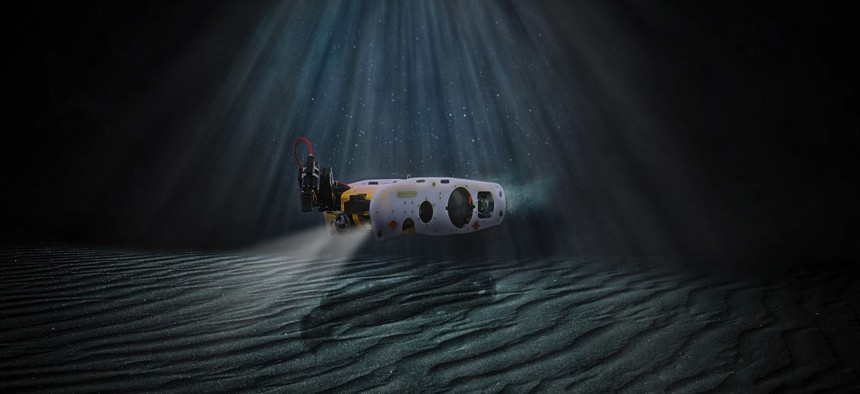Pentagon Testing Small Robot to Help Hunt Naval Mines

Illustration via Saab
The US military has been looking for an underwater bomb disposal robot for years. It finally has one.
Most of the machines developed to help navies hunt the stealthy underwater predators called mines require a big crew and a ship or helicopter, which is why the U.S. military is excited about a two-person underwater robot that weighs less than 200 pounds.
The Saab Waterborne Anti-IED Security Platform, or SEA WASP, is a small remote-operated drone outfitted with an electric arm, sonar, and radar to collect information on where it is and what’s around it. A mine-hunting drone may not sound that advanced compared to space planes and autonomous swarming vessels, but it actually represents a real technological feat. TheWASP weighs just 90 kilos, light enough to be carried to by two people. It’s hard to get a machine that light to stay in one place to probe for mines against underwater currents.
“One of the reasons we selected Saab,” said Ed Bundy, who works for the of Pentagon’s Combating Terrorism Technical Support Office, or CTTSO. “They were the only company that actually told us this was a really hard problem.”
The Navy’s explosive ordnance disposal, or EOD, community is particularly interested, said Bundy.
“Low visibility is a problem wherever the Navy EOD guys work,” he said at the Navy League’s Sea Air Space conference.
SAAB began marketing the machine just after Christmas and so far has sold three to various government bodies in the United States but has seen “huge interest worldwide” according to Bert Johansson, Saab’s director of unmanned underwater vehicle systems.
Mines are a devilishly hard problem to solve. A 2002 study from the University of California, Berkeley, found that just a few mines could be an enormous problem for the United States, potentially bringing shipping to a halt and costing tens of billions in lost revenue. And of the 19 U.S. warships heavily damaged or sunk by enemies since World War II, 15 were the victims of mines.
NEXT STORY: Student Coders Expect $70K Starting Salaries






